2019 Update: In the 2018 election, women, especially women of color, showed up and showed out! The strength and resilience of black, Latinx, and Native women will be the change we need to make America a government for the people and by the people. The images of the women of color screamed “I am woman hear me roar!” Go on girls, do your thing.
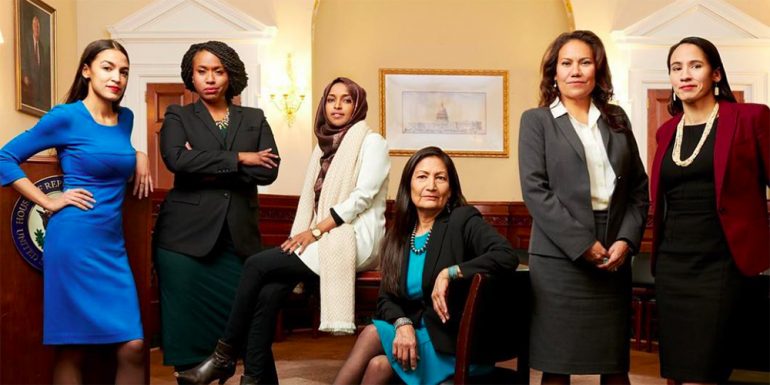
My father and grandparents were southern raised. I am a Midwest Chicago girl with southern undertones. Southern hospitality was a cornerstone of my upbringing. Whenever we had relatives from the south visit or we would go south, I was reminded to mind my manners. Southern etiquette reminded me of how blacks survived slavery. Adherence to etiquette and civility were paramount. You never overtly spoke your mind. Parables, biblical phrases, and other niceties were used to throw shade. For example, if a southern black woman says “bless your heart” that is an insult of the highest order. It means they think you are an idiot. Whereas, “bless his heart,” can be a term of sympathy for a defect, disorder, or illness. Likewise, negro spiritual hymns that slave masters loved to hear the slaves sing had double entrendre – an impeding slave escape, trouble on a plantation, news of the war.
I admired my southern counterparts, but a trip South as a nine-year-old introduced me to overt racism and a near run-in with the klan. I vowed never to return South. I think that sentiment was similar to many blacks during the Great Migration north that Isabel Wilkerson highlights in her book, The Warmth of Other Suns. After the Civil Rights Movement, the northward migration had many blacks turn their backs on southern heritage of homeopathic medicine, midwifery, canning, farming, cowboy life, farm to table eating, oral traditions, and gun ownership.
I went to Florida during law school for the summer of 2000. It was not without trepidation because my first southern visit at nine left an indelible memory. I was shocked to find that there were still black and white sides to towns. I was often referred to as a “northerner Yankee” by blacks and whites. I realized that outside of Miami and Broward county, Florida was very much the South and the overt racism disturbed me. I decided further excursions south should be avoided. Recently, I visited Memphis. Previous trips south made me reserved. I had no expectations besides visiting the National Civil Rights Museum. Fortunately, change and transformation is on the horizon in Memphis.
At dinner, I was struck by one of the guests. She was a young svelte professional black woman. Despite her petite stature, she stood out. She looked like vintage Ruby Dee in her 1950s dress, hair style, and heels. When I spoke to her, she had the most delightful southern accent. Her name Rachel Knox. She was a proud Memphian. She informed the table that Memphis was rising like a phoenix from the ashes. When we ordered drinks, Rachel ordered a whiskey double neat. I looked at her, “You are the modern black southern belle! Not since my great aunts have I seen such a prim and proper black woman order brown liquor. I don’t like brown liquor, but I love to cook with it.” Rachel replied, “If that’s the case then try Chattanooga 1816 cask in your peach cobbler.” By the end of the night, I found out that in 2015 she ran for City Council and was a gun owner. She showed me pictures of her at the gun range in her yellow vintage 1950s dress with heels and her target. “If you have time, I can take you to the gun range with me.” I immediately felt a kindred spirit in her. She reminded me of the grace, wisdom, and elegance of my southern great aunts who would visit our family in Chicago. Her energy was infectious and demeanor so disarming that I felt a soul sister connection. In her, I saw the spirit of the black women of Alabama that saved the state and country from Roy Moore.

Rachel Knox, Memphis native
As native Memphian Rachel said, “Memphis is a unique city because historically we’ve encountered devastating events that would have otherwise buried another city, but Memphis always returns stronger and burns brighter than before. Whether it was the yellow fever epidemic in the 1870’s where the population dwindled down so much that we lost our charter, or the painful assassination of Dr. King, Memphis has always managed to return much like a phoenix rising from the ashes. It’s one of the reasons I love this city so much. We are a formidable city with people who are unafraid to roll up their sleeves and get to work. We are city that’s filled with passion and soul. It’s a city where if you have [the] audacity to dream it, you can do it here! And while we acknowledge the work that needs to be done we cheer loudly, passionately, for not only individual successes but the success for the city as a whole.”
SOUTHERN VS. NORTHERN BLACK IDENTITY
I spoke with Rachel about the changes happening in Memphis, changes that I expected from New York or Chicago. She noted the difference may be found in Dr. King’s commencement address to Oberlin College, Remaining Awake Through a Great Revolution. In it, Dr. King states, “Anyone who feels that we can live in isolation today, anyone who feels that we can live without being concerned about other individuals and other nations is sleeping through a revolution. All I’m saying is simply this: that all mankind is tied together; all life is interrelated, and we are all caught in an inescapable network of mutuality, tied in a single garment of destiny. Whatever affects one directly, affects all indirectly.” How prescient are those words in today’s “America First” rhetoric.
Dr. King continued stating, “We are challenged to work passionately and unrelentingly to get rid of racial injustice in all its dimensions. For while we are quite successful in breaking down the legal barriers to segregation, the Negro is now confronting social and economic barriers which are very real… Let nobody give you the impression that the problem of racial injustice will work itself out. Let nobody give you the impression that only time will solve the problem. That is a myth, and it is a myth because time is neutral. It can be used either constructively or destructively. And I’m absolutely convinced that the people of ill will in our nation – the extreme rightists – the forces committed to negative ends – have used time much more effectively than the people of good will. It may well be that we will have to repent in this generation, not merely for the vitriolic works and violent actions of the bad people who bomb a church in Birmingham, Alabama, or shoot down a civil rights worker in Selma, but for the appalling silence and indifference of the good people who sit around and say, “Wait on time.” Somewhere we must come to see that human progress never rolls in on wheels of inevitability. It comes through the tireless efforts and the persistent work of dedicated individuals. Without this hard work, time becomes an ally of the primitive forces of social stagnation.”
As Rachel and I discussed covert racism that I and other “northerners” had become accustomed to, she mentioned that black southerners were not as shocked by the rise of Trump and the blatant racism. She said that her grandmother reminded her that “this was not the first time a white supremacist has been in office. We had a Great Depression and survived. We’ve been through worse before and survived as a people. Stand on that legacy, knowing the boundaries of living in a racist south and push further.”
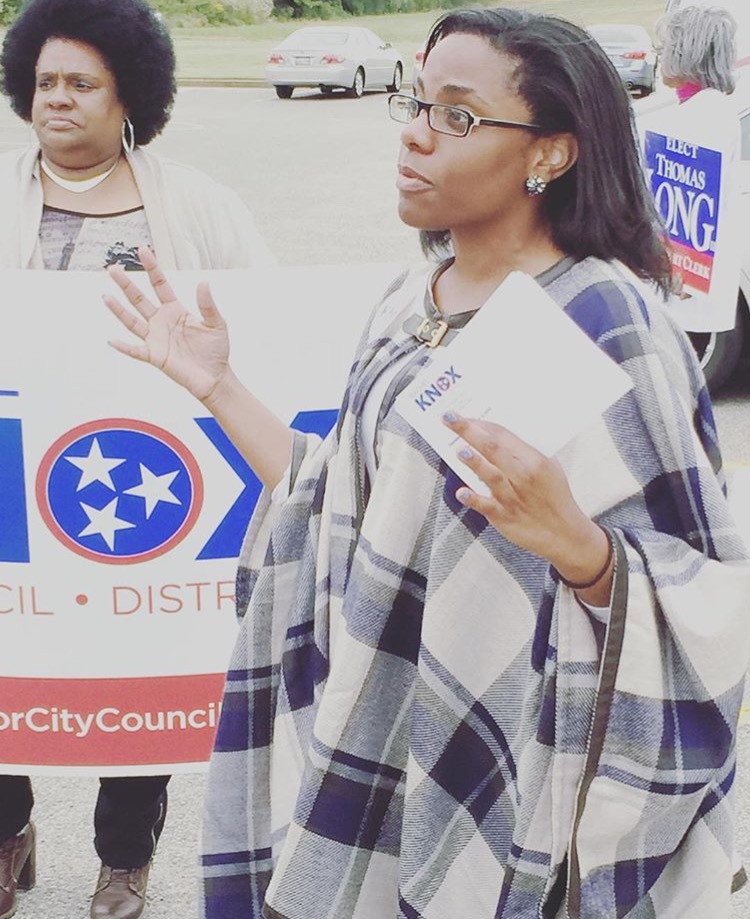
Rachel Knox, Campaigning in 2015 for City Council of Memphis
I pondered her recitation of Dr. King and her grandmother’s sage advice, it reminded me of a discussion I had with my college age nieces and nephew about millennials, especially black millennials, going beyond protesting and using the power of the vote to disrupt the political landscape. There was a complacency assuming that civil rights fought for in the 1960s did not have to be continually fought for lest they be taken away. To paraphrase Dr. King, while us northerners were enjoying the perks of integration, forces committed to negative ends where fast at work gerrymandering and redistricting to restrict our voting power and we slept on it. To this day, I am appalled and saddened when I hear so many black people, particularly the youth, say that they did not vote. Asma Khalid noted, “Millennials are now as large of a political force as Baby Boomers according to an analysis of U.S. census data from the Pew Research Center, which defines millennials as people between the ages of 18-35. Both generations are roughly 31 percent of the overall electorate. [Unfortunately], millennials continue to have the lowest voter turnout of any age group.” I use the example of Ferguson, Missouri with about 70% black population, over 90% of its elected officials were white. A year after Michael Brown’s death, only 19% of Ward 3 showed up to the polls.
Rachel mentioned that as Memphis is transforming, there is a conscience effort at not displacing the black population. Memphis has a 65% black population. Rachel said, “We’re not trying to be Atlanta. We like being a midsize city, accessibility without the bureaucracy and red tape of a big city because there is no singular entity making the calls. Memphis is the perfect size and we don’t want to lose that. It helps our ‘grit and grind’ hustle and the ability to make sure you don’t fall through the cracks. Although we have a high poverty rate, this is still a generous city.”
REVERSE MIGRATION – SOUTHERN LIVING
I was candid about my reservation about living in the South. However, Memphis made an impression. I asked Rachel on how northern blacks considering a reverse migration south could make the transition. Below are some of her tips.
Dry Sundays
Tennessee, like other southern states and counties, is dry on Sunday meaning no liquor is sold on Sundays. You have to purchase your liquor on Saturday. There are current measures suggested by state representatives to reverse this, but for now we still have dry Sundays.
Southern vs. Country
Some black people do not like calling themselves “southerners” preferring the term country. Rachel noted, “Traditionally a southerner denoted a person owned land and sat on the porch sipping tea or was construed as a racist. Whereas, country folk worked the land.”
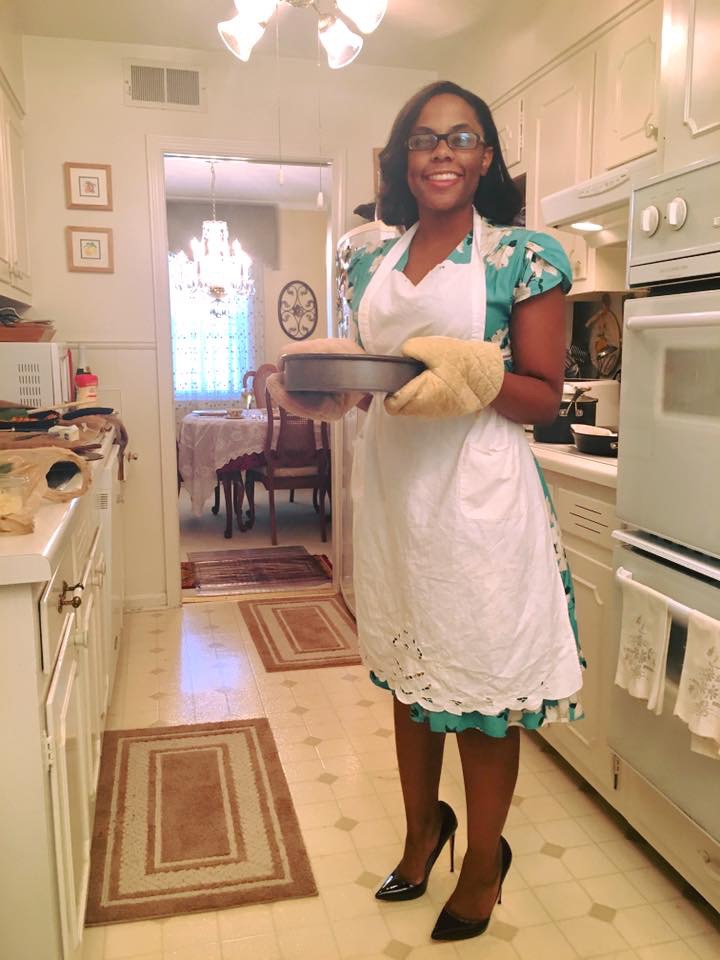
Rachel Knox
Separation of Genders
Rachel noted that although the separation of genders seems antiquated, it does allow women to be their “most authentic self.” The men are in the living room drinking and talking and the women go to parlor or kitchen to have peace and privacy to enjoy their whiskey and talk. She said, “I can wear frilly dresses, go to brunch and drink whiskey, but will pull out my picket sign and protest inequality. It is about being able to be vulnerable, joyful, and having fun being human – especially being safe, soft, and tender with my girlfriends. It is about being authentic with manners. I order whiskey because it is what I drink at home not because I am trying to impress someone.” She continued, “My church gal group includes nurses, teachers, and other black professionals all of them own guns. One is an avid duck hunter that can field dress a deer.”
Embracing the Culture & Heritage
Rachel mentioned that blacks in the south understand that it is a painful history, but she said that “you must own it and not walk away from it – embrace the culture and the heritage. Come with an open mind. It is a big culture shift – slow down, chill out, slower pace. The south is homogenized. Accept the fact that people will be late to meetings and it is not out of spite, they are just running late.” She talked about the differences in interactions when she lived in DC and visited other northern cities where people tried to figure out if you were worth their time. “I was offended because in the south we are not trying to mine people for data. We want to know are you a decent person, have you eaten well? Now we are concerned about your people because if your relatives are known to be trouble makers or owe money, that might be problematic. Generally, we’re taught to respect everyone regardless of status. Southern people do not have a culture of trying to impress people because what you own doesn’t tell anyone what kind of person you are.”
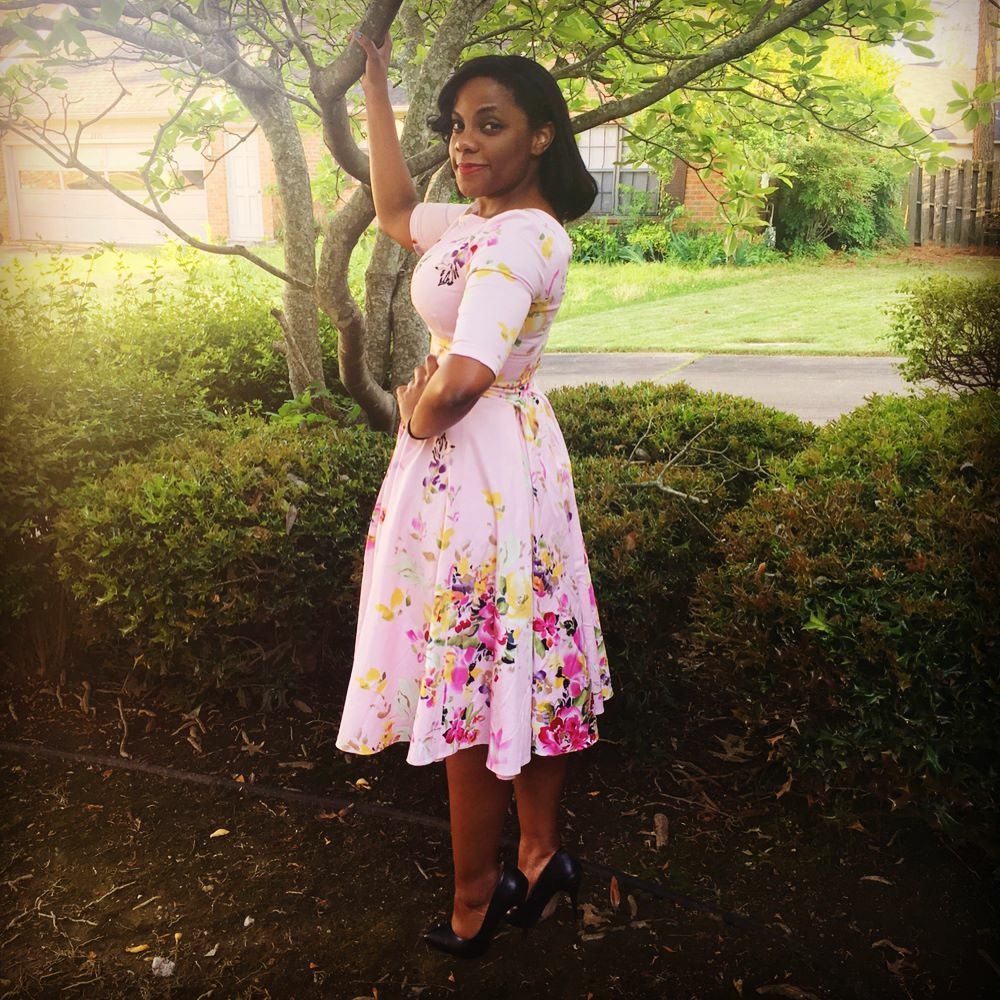
Rachel Knox, proud Memphian
She added that coming down with an aggressive personality and attitude that your northern city is better is not helpful. “No, we may not have a recycling program but if you are willing to start one, we will embrace it. Saying you hate pork does not win hearts. But if you’re vegan and want to start a vegan restaurant, we will embrace you. If you have a skill set and are willing to work, people will trust you and ask how you need them to help. Remember, Memphis motto is ‘grit and grind.’ People respect people willing to put in the work. We support locals which is why when you asked me about whiskey, I mentioned Chattanooga 1816, Gentleman Jack and Old Dominick – you name the home team. What would I look like promoting a Kentucky bourbon?”
Navigating Overt Racism
I asked Rachel about what northern blacks could expect moving south. She replied, “Memphis is a blue dot in a red state. In the professional world, sometimes I can go all day and not see another person of color in a leadership or senior management role, so it can feel deeply segregated in white spaces where someone will say they have a problem finding quality black applicants.” However, I noted that you can hear that in Chicago or New York as well. She suggested learning the history of the area you are moving to. As she stated, “There is a ball of conflict of what the South says you are versus what it says it is.”
She indicated, “The most important thing is to find a southerner who knows what happens. The black southern community is supportive. People will tell how to navigate the area. Ask what they like to do, where they like to eat? Be careful though, once you trip the wire of information an explosion may occur and there will be no way out of the conversation.” I can attest this. A “good evening” started what I thought would be a short conversation with a piano player that lasted well over an hour. That is what she means about tripping the wire. It was a wonderful conversation, but I did not know how to exit without appearing rude.
For me, visiting Memphis struck a chord. It reminded me of my southern granny, great aunts and uncles, and hospitality. There was a warmth of community that felt like a family reunion. It reminded me of the village that I grew up with in Chicago, not Chiraq. Something is brewing down south with our southern black brothers and sisters. Let us not sleep on the revolution and their role in it. Have we forgotten that it started with them in Montgomery, Mobile, Atlanta, Birmingham, and Memphis? I do not see myself moving south, but I can see myself revisiting Memphis. I am curious how their phoenix rises! The black butterflies of the south are spreading their wings, standing up and making a mark. The future is female and black women are leading the charge.
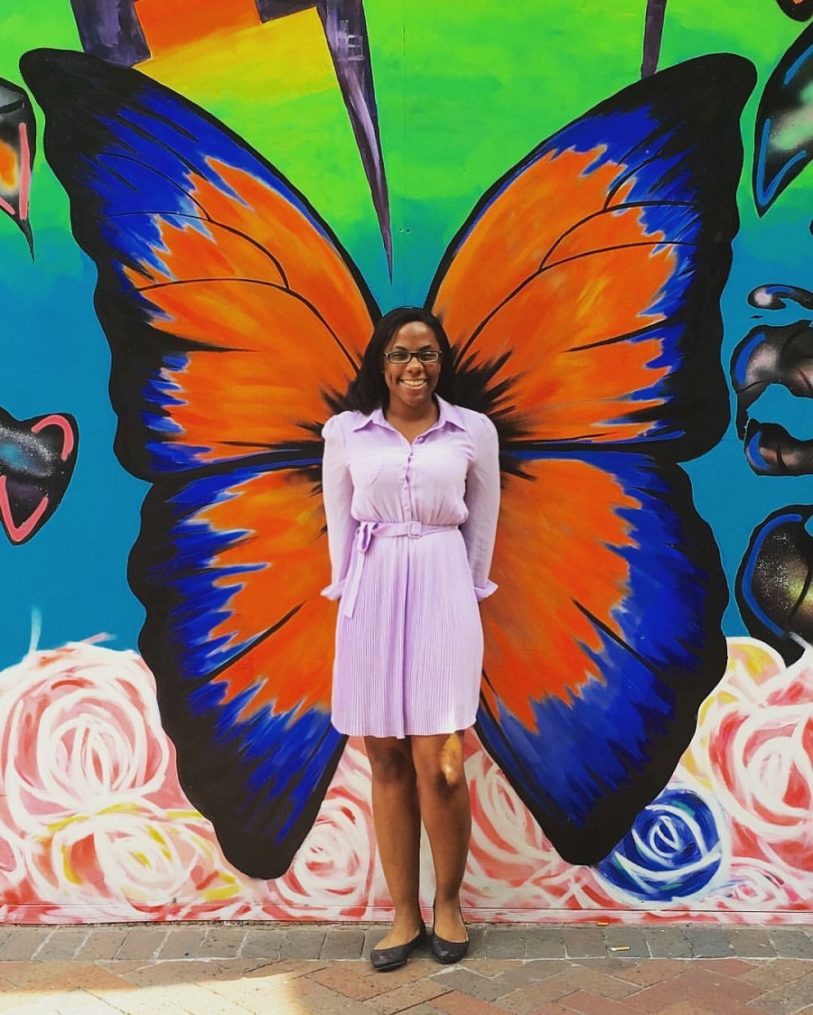
Rachel Knox
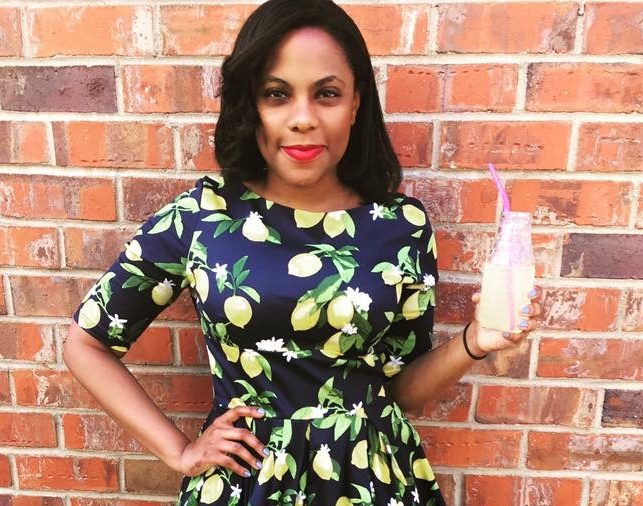
Her mother saved what was left of my soul.